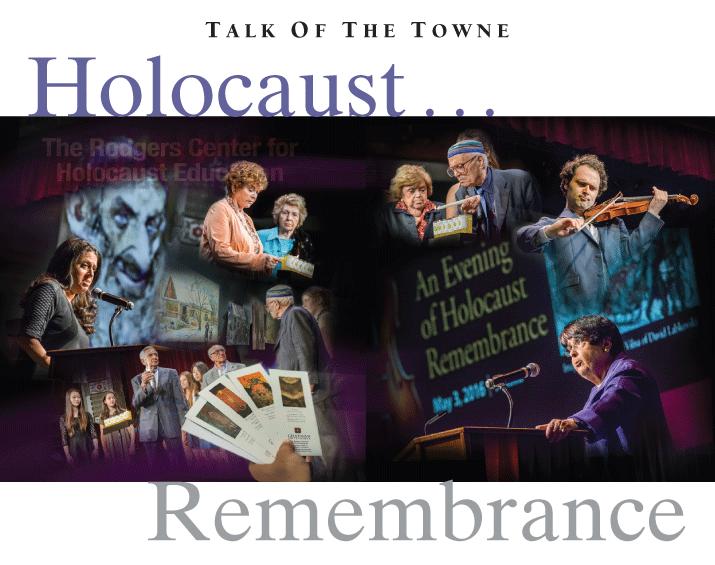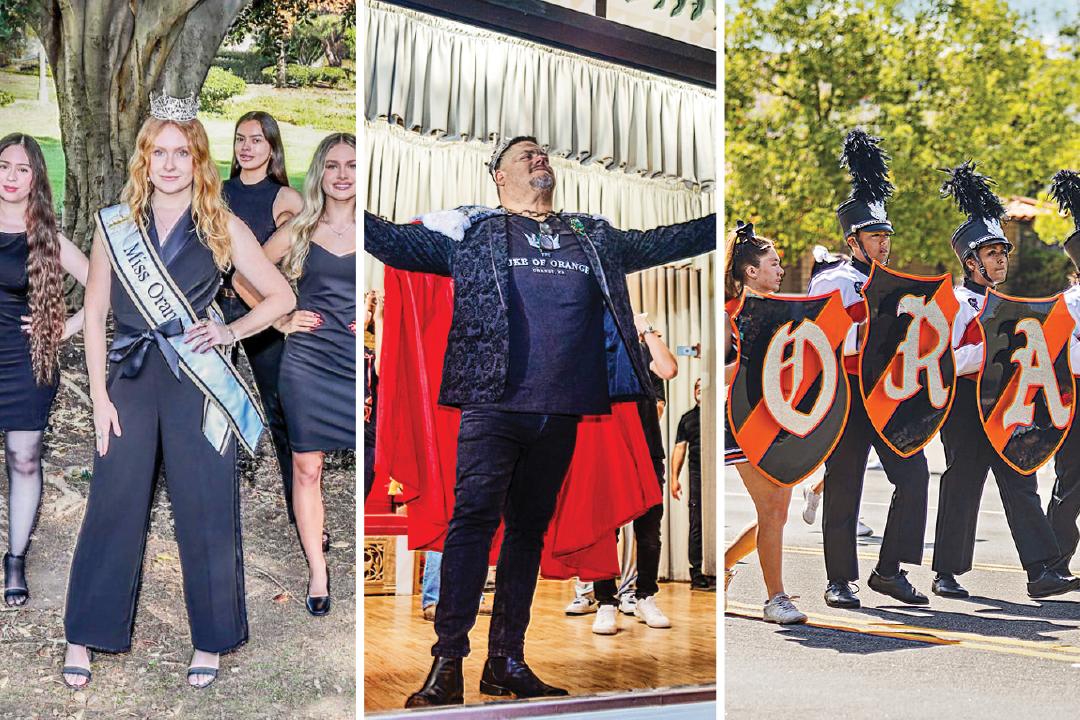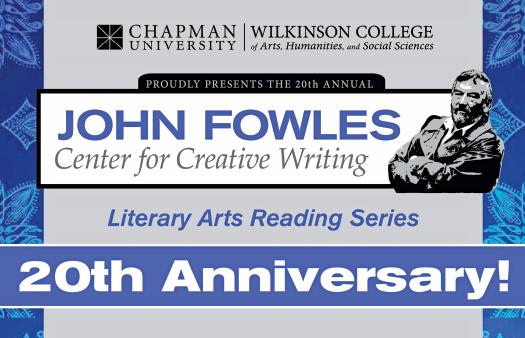
As time marches into the 21st Century and we recall the cataclysmic event of the Holocaust, memories and individual stories make this increasingly distant history meaningful and real. This wouldn’t be possible, however, without programs that commemorate this history in ways that educate and inspire.
Thanks to the work of Chapman University’s Rodgers Center for Holocaust Education under the guidance of the Center’s Director, Marilyn Harran, the Holocaust, its victims and survivors, are remembered through events such as the upcoming “An Evening of Holocaust Remembrance in Words, Music, Dance, and Film” to be held April 20 at the university.
“We live in a challenging time in which we’re getting further and further away from the Holocaust. In the process, we’re losing the faces and voices of the people who experienced these events. Our challenge is to find ways to carry memory forward so that we not only remember, but are inspired to live with greater compassion and humanity today,” says Harran, who is also the Stern Chair in Holocaust Education. “At the Center, we seek to study and share survivors’ stories in such a way that history becomes personally meaningful.”
This year’s event will pay tribute to Elie Wiesel, Nobel Peace Prize laureate and 2011-2015 Presidential Fellow at Chapman University. Wiesel, whose memoir, Night, chronicled his experiences during the Holocaust, died on July 2, 2016.
“We were honored to have Professor Wiesel speak at the Evening of Holocaust Remembrance in 2012,” says Harran. “With this year’s event, we want to remember him, as well as the other survivors who have passed away within the last year, honor those who continue to witness, and remember those whose lives were taken from them.”
The event will offer remembrance from several different perspectives. There will be music performed by pianist Daniel Alfred Wachs, director of orchestral activities in the Hall-Musco Conservatory of Music in Chapman University’s College of Performing Arts, and by violinist Iman Khosrowpour, conductor, Symphony Orchestra and Violin Faculty at Irvine Valley College, as well as reflections by Harran; Dr. Gail Stearns, Dean of Chapman’s Wallace All Faith’s Chapel and Rabbi Elie Spitz of Congregation B’nai Israel in Tustin, who knew Wiesel for many years. Chapman students will perform an original dance choreographed by senior dance major, Cristina McKeever.
There will also be a screening of the documentary, “Memory Keepers,” directed by filmmaker Molly Blank. Shot on location in Sighet, Romania, where Wiesel and Blank’s grandfather, Henry Blank, lived, the film tells the story of the once vibrant Jewish community in Sighet devastated in May 1944 when 13,000 residents were sent to Auschwitz. The documentary is centered around 100 descendants who gathered in May 2014 to remember Sighet 70 years after the deportation.
“The film uses the lens of this memorial event to reveal the stories of those who perished and those who survived, while considering the impact of the past on the present,” says Blank, who initially thought the documentary would commemorate her family, but it turned out to express a much broader theme.
“The idea of memories and how we process trauma and move forward in life turned out to be the most important message, so I made that the focus of the film,” says Blank. “At one point, there’s a scene when the descendants stand on railroad tracks with lit candles while a man who’d been friends with Elie Wiesel, makes a speech in Yiddish. It was a powerful moment for me as a filmmaker and as a descendant of the community. The first time I showed it to a roomful of Holocaust survivors and their descendants, I found the experience to be incredibly powerful.”
In the end, it’s memories that bind us to the past and keep us mindful of our present and future, notes third-generation survivor, Daniel Alfred Wachs. “I wouldn’t be here today participating in “An Evening of Holocaust Remembrance” were it not for the bravery and luck of my maternal grandmother,” says Wachs. “Most of the family on my mother’s side was exterminated in the Holocaust, and my grandmother’s tale is a story in its own right. Every year since my arrival at Chapman University 10 years ago, I heed the call to forgive, but not forget.”
Wachs and Harran strive to select music that is appropriate and uplifts the occasion. “It’s an overused cliché, but music knows no language–it’s universal,” says Wachs. “We seek music in times of comfort, in times of peril, in times of grief and remembrance. This year, as we remember Dr. Wiesel, we’ve chosen a selection from Beethoven – his favorite composer.”
“An Evening of Holocaust Remembrance in Words, Music, Dance, and Film” is April 20 at 7 pm in Chapman University’s Memorial Hall. The event is free and open to the public. Visit www.chapman.edu/research-and-institutions/holocaust-education/rodgers-center/holocaust-remembrance, or call (714) 532-7760 for more information.



